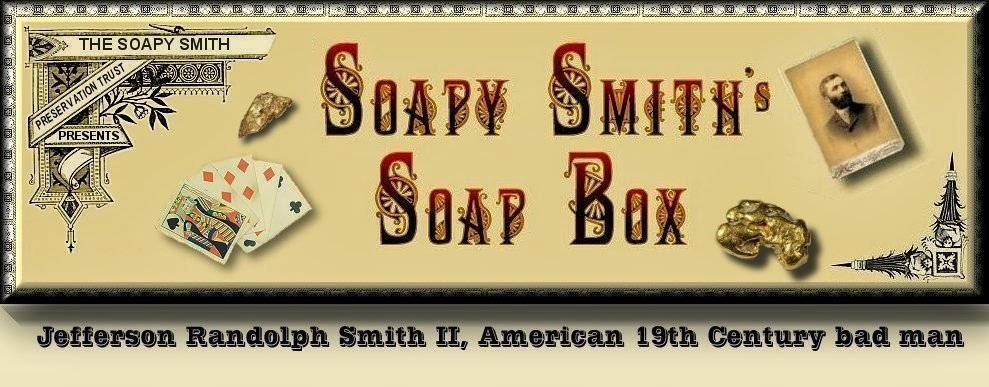Our friend, Gary over at Old West History Net has this great YouTube video made by the High Desert Museum on old west gambling that I thought was very well made. There are some neat old-timey film scenes and demonstrations of gaffing (cheating) card equipment, including a card trimmer, corner rounder and a wrist holdout. One mistake that stood out for me was the misleading mention of three-card monte as a seemingly honest game played in gaming houses. I really enjoyed this video and though some of you might as well.
Gary also had a few paragraphs from Charles Jay:
Gary also had a few paragraphs from Charles Jay:
There was nothing conservative about a lot of what went on in the old West - the "Wild Wild West," if you will. This was a time when land was settled and claimed, leading to brand new communities springing up everywhere, and for recreation's sake, a hunger persisted for the kind of "vices" that haven't changed to this day, namely gambling and boozing. If you were at a settlement, old or new, you usually didn't have to look far for whiskey or "female entertainment," not to mention a roulette, craps, Blackjack or poker game.
Gambling was not necessarily an "industry," per se, but something that was set up on an ad hoc basis, and often there were entrepreneurial types who made sure there was a steady supply, and saloons offered games as an amenity. There were also stand-alone structures dedicated to gambling; that's how popular the activity was.
And who was going to stop them? During this wave, gambling was either not outside the law or in a "gray area" that was not necessarily governed, and certainly not regulated. Some of the most colorful gambling stories in history come out of this era, not the least of which was the poker game in Deadwood, South Dakota in 1876, where Wild Bill Hickok, who had his back to the door of a saloon (breaking his own cardinal rule) was shot dead for reasons that are not fully resolved to this day. He was holding a hand of Aces and eights, which has since become known as the "Dead Man's Hand" (although the origin of this has been disputed as well).
The game of blackjack may have originated as "Vingt-et-un" in Europe, but in the United States, it exploded in the old West, and a legendary practitioner took the game over with her from France. One of the card sharps who moved from one camp to another in the old West was Elanore Dumont, known to many as "Madame Mustache," who made much of her living off blackjack winnings, the result, mostly, of dealing and banking the game herself. She won graciously, often giving out champagne to the losing blackjack players. She traveled a great deal, setting up shop in such outposts as Nevada City, CA, Helena, MT, Salmon, ID, Virginia City, NV and others.
One of the things that led to the expansion of gambling to the West was obviously the California gold rush. At one point the San Francisco area was the center for gambling activity, and it then spread to other areas of California and Nevada. Obviously there is a "get rich quick" element to the gambling culture, and a lot of the fortune seekers who came west were veterans of the games on riverboats that sailed up and down the Mississippi River. They brought games with them, notably craps, which might not have been the most popular game in the old West, but became a lot more consumer-friendly when John H. Winn developed new bets such as the "Don't Pass" line.
San Francisco, which was the predominant metropolis in the Golden State, was also the home to many opulent gambling dens, no less extravagant than those that might be found aboard riverboats or at Richard Canfield's establishments in New York. At those venues the game of roulette, of European origin and still largely identified by many with the upper crust, found a foothold. The introduction of this game to the West also brought it into the saloons and other "sawdust" joints, as it involved the element of chance and offered a sizable payoff for straight number bets.
Arguably the most popular game in the old West was not roulette, nor craps, not blackjack, and perhaps not even poker. No, the game that may have caught on strongest was Faro, which was simple, fast-paced, and offered the chance to put an entire stake on the turn of a single card. The game still exists, but not much in the "new" West. It has been replaced by others, not the least of which is the game that is considered to be its direct descendant, baccarat!
.


No comments:
Post a Comment
Thank you for leaving your comment and/or question on my blog. I always read, and will answer all questions asap. Please know that they are greatly appreciated. -Jeff Smith